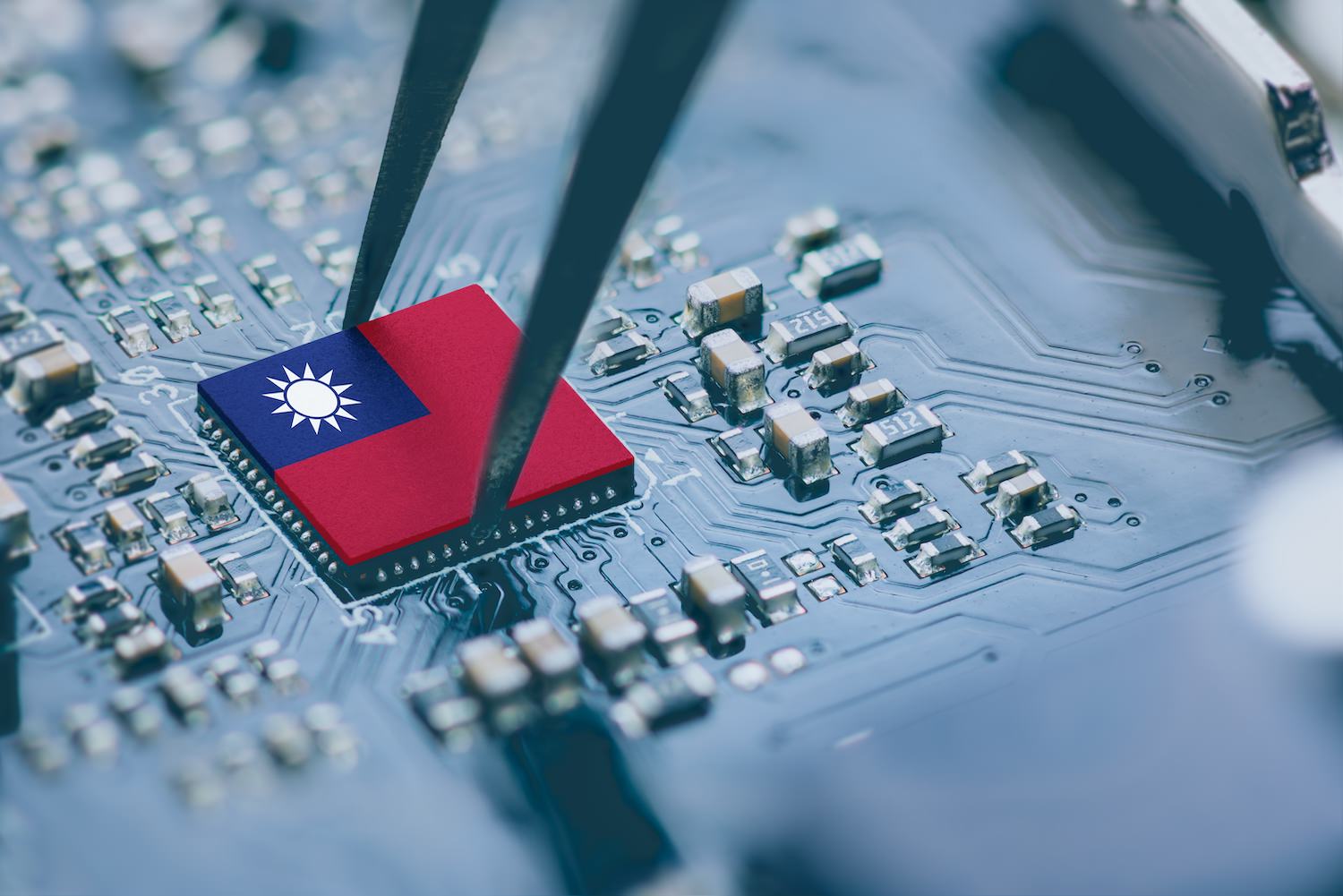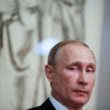It has become an article of faith in Washington circles that conflict between China and Taiwan is a palpably real near-term concern. Most recently this idea has been given new life because funding for Taiwan is baked into the Biden administration’s massive $105 billion aid bill for Ukraine, Israel and Taiwan — even though the total allocation for Taiwan in that bill is a mere $2 billion.
Interested to learn more about the facts on the ground in Taiwan, I spent the first week of October in Taipei and, in a stroke of coincidence, departed for Seoul the afternoon of Hamas’ horrific October 7th attack on Israel. While I was there, I spoke with journalists, entrepreneurs, investors, and artists based in Taipei. And the message I heard was unanimous, albeit with occasional qualifications: China isn’t going to make any military moves against Taiwan anytime soon. And the situation is being broadly misrepresented in the West.
One difficulty is that Western audiences and analysts are mostly not familiar with Taiwan’s complex history. And outside of a basic understanding of the tensions that arose around US involvement in anticommunist networks and the government of Chiang Kai-Shek, I was in the same boat. That’s why I went there — to learn.
And learn I did. Chris Horton, a former New York Times correspondent in Taipei, generously tutored me and connected me with his network. Taiwan’s political landscape is dominated by two major coalitions led by two competing parties, the Democratic Progressive Party (DPP) which forms the bulk of a “green” coalition, and the historic Kuomintang (KMT, the Chinese Nationalist Party) which comprises the largest share of a “blue” coalition.

Taiwan’s Nationalist Kuomintang Party (KMT) chairman Eric Chu at a campaign rally. Photo by glen photo.
The indigenous Taiwanese population, which shares more in common ethnically with Polynesian peoples found throughout the South Pacific, is generally aligned with the DPP party, which supports full independence for Taiwan. By contrast, the KMT is seen as a vector for influence by the Chinese government through capital investment and promises of trade. I heard widespread consensus that the KMT was the primary political channel through which China exerted influence on the island’s wealthy and connected: after all, who doesn’t want to get rich?
If there is a pressing political concern, it is the upcoming presidential election on January 13, 2024, which will pit DPP (Green) candidate (and current Vice President) Lai Ching-te against the KMT’s Hou You-ih. The incumbent president, Tsai Ing-wen of the DPP, was elected in 2020 and is ineligible for re-election. Most people I talked with felt the DPP was likely to remain in power, but that if the KMT did win, it would serve as a channel through which China could push the message that the absorption of Taiwan was inevitable, and simply practical from a economic and political perspective. But DPP-aligned voters aren’t having any of that.
Complicating things further is a very recently proposed alliance between the minority Taiwan People’s Party (TPP) and the Kuomintang. While the TPP represents a small minority faction, its presidential candidate Ko Wen-je is proving popular with some younger people. The prospect of a KMT-TPP alliance raises the question of which candidate, KMT’s Hou You-ih, or TPP’s Ko Wen-je, would occupy the top of the ticket. That is being debated now, and some believe that a combined TPP-KMT ticket may be sufficient to prevail over the incumbent DPP.
The 900 pound gorilla which is always in every room is Taiwan Semiconductor Manufacturing Corporation (TSMC) which single handedly and uniquely powers much of the United States’ technology industry. While the US struggles to build comparable capacity with new investments in Arizona and Ohio, Taiwan locals painted a complex picture about why TSMC is hard to clone. They attribute it to a unique combination of a large, talented, and exacting labor pool from which they select skill sets along with a sense of pride that comes from executing on a mission closely tied with Taiwan’s national identity. These factors simply don’t converge in the same way in the United States — or perhaps anywhere else.
For all these reasons, the consensus I heard was that China will not make any military moves on Taiwan anytime soon. It’s just too messy, too noisy, and too likely to cause disorder and chaos — all of which the PRC disdains. However, two scenarios warranted consistent mention.
First, if the Chinese Communist Party (CCP) were to enter a period of extreme instability, accelerating action to absorb Taiwan might be seen as a pathway to revive sagging fortunes. Second, many felt that Xi Jinping likely perceives unification with Taiwan as an important part of his legacy and may, as he gets older, decide to accelerate the process. But even with these potential scenarios, everyone I spoke with felt that there was little appetite in the CCP for instability or violent conflict.
Thinking further outside the box, external agitators such as North Korea, Russia — or even rogue elements in the United States — could provoke a scenario in which Xi feels compelled to save face or protect China’s interests. These wildcard scenarios are not on the radar of people I spoke with. But as Putin and Kim Jong-un are increasingly aligned and of the mind to instigate chaos, these scenarios should at least be considered. Additionally, General Charles A. Flynn, the brother of MAGA-aligned Lt. Gen. Michael T. Flynn, is based in Hawaii where he heads the US Army Pacific Command. Reported to have lied about his role in delaying the National Guard’s response to the Capitol on January 6th, he may emerge as a potential risk factor in the region.
No Change Since Hamas Attack
Despite a constant drumbeat of concern in Western media from politicians and analysts, there is not a sense that Taiwan’s situation has changed materially since the attacks on October 7.
Syd Goldsmith, a writer based in Taiwan for over 40 years who monitors the situation closely, said that among his contacts, “nobody sees a serious near term threat to Taiwan, [remaining the same] as it was before the outbreak of the Israel-Hamas war. There is very little to be gained from a military move and a great deal to be lost. PRC bellicosity is aimed at multiple audiences, but of course there is hope that [it] will make Taiwanese voters nervous enough not to vote for the DPP.” While the DPP presents itself as the best safeguard of Taiwan’s sovereignty and the status quo, the prospect of military conflict may scare some voters into what they might perceive as a safer course with the KMT.
While many in Taipei conceded that Taiwan’s situation parallels that of Ukraine’s in some ways, they did not feel the situation was entirely analogous. Even as Putin amassed troops and materiel along Ukraine’s border in early 2022, the consensus in Kyiv was that Russia would not invade, and that the moves amounted to an empty threat.
By contrast, those in Taipei point to the fact that any serious effort to mount a military takeover of Taiwan would require preparation up to at least a year in advance. While China has increased its provocations in the South China Sea, they seem primarily intended to project a sense of strength and looming menace, amounting to inexpensive information warfare operations. But there is no sign that a major military operation is forthcoming anytime soon. However, there was at least some sense that if Ukraine did succumb to Putin’s invasion, Xi and the CCP may accelerate efforts to absorb Taiwan.
Targeting Multiple Audiences
China directs different messages towards distinct audiences to serve different purposes. To those in Taiwan, they aim to drain support away from the DPP party and towards the KMT, which is more aligned with their goals. For US audiences, they seek to undermine US hegemony and give the sense that near-term conflict is inevitable if China doesn’t get its way with Taiwan soon. And to his own domestic audience, Xi must convey an image of strength in order to maintain the power he claims to have. These are complex goals to satisfy.
For all these reasons, foreign observers should avoid repeating Chinese messaging at face value and without understanding the specific context in which it is deployed. Taiwan’s reality is complex and multifaceted, and can’t be reduced to simplistic soundbites like “Taiwan is next.”
And there is no reason why the United States cannot support its strategic goals in Ukraine, Israel, and Taiwan. Any effort to pit those priorities against each other, or even more preposterously, to tie those priorities to domestic shenanigans such as defunding the IRS or provoking a government shutdown, is deeply irresponsible. Taiwan isn’t a political football and its citizens have the right to determine their own future. We in Washington should do a better job of listening to them.
Dave Troy is an investigative journalist focused on exposing threats to democracy. Based in Baltimore, his background as a technologist with an interest in studying online extremism affords him a unique perspective. His work has appeared at MoMA in New York, and he is a fellow with New America Foundation’s Future Frontlines. Dave writes regularly about information warfare, history, and politics. He is the host of the podcast Dave Troy Presents, and speaks regularly at conferences on disinformation, extremism, and information warfare. Contact information is available at davetroy.com.






